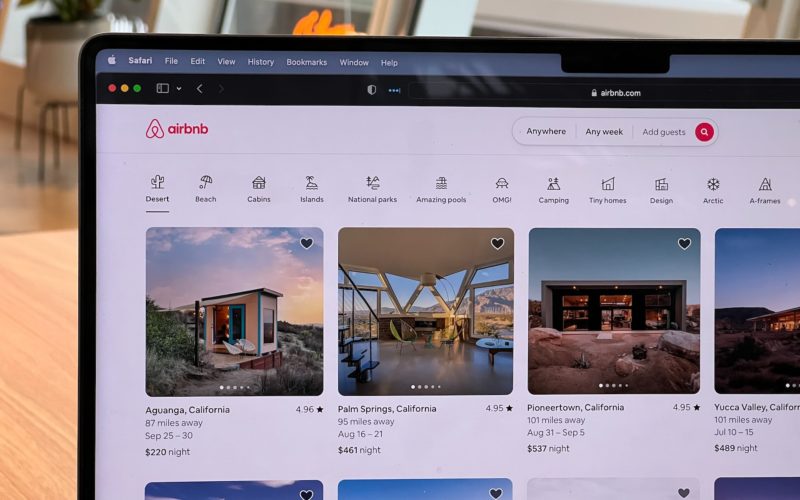Choosing a college is a monumental decision, especially for students who already know they want to pursue a career in marketing.
With countless institutions offering marketing degrees, each with its unique features and strengths, how do you decide which college is right for you?
Evaluate the Curriculum: The Foundation of Your Marketing Career
The curriculum serves as the backbone of your educational journey, shaping your skills and equipping you with the essential knowledge you’ll need in your marketing career.
With numerous colleges offering diverse courses, it becomes crucial to carefully scrutinize what each institution has to offer and how it aligns with your aspirations in the field of marketing.
Core Marketing Courses: The Building Blocks of Your Marketing Education
Fundamental Courses: The Must-Haves for Any Marketer
- Marketing Principles: This course typically serves as the foundation of any marketing program. It gives you an overview of what marketing is, its functions, and the basic principles that guide marketing practices.
- Consumer Behavior: Understanding your target audience is the essence of marketing. A course in consumer behavior delves into psychological, cultural, and social factors that influence consumers’ buying decisions.
- Digital Marketing: Given the ever-increasing role of digital media, a course in digital marketing can teach you how to effectively market products online, including social media marketing, SEO, and email marketing.
Elective Options: Your Chance to Specialize
- SEO and Content Marketing: For those interested in the digital landscape, electives in Search Engine Optimization (SEO) and Content Marketing can provide in-depth skills that are highly in demand.
- Social-Impact Work through Marketing: Some colleges offer electives that focus on leveraging marketing for social good, allowing you to combine your career goals with your personal values.
Specialization Opportunities: Deep Dive into Your Area of Interest
Digital Marketing: The Future of Marketing
- Social Media Marketing: Courses may focus on best practices for using various social media platforms to engage customers.
- Data Analytics in Digital Marketing: This is a must for anyone wanting to excel in the digital age. You’ll learn how to analyze data to gauge the effectiveness of your marketing campaigns.
Market Research and Analytics: The Science Behind Marketing
- Quantitative Research: Courses may teach you how to design and analyze surveys and experiments to gather data on customer preferences and behavior.
- Analytics Tools: Learning how to use analytics tools can set you apart from others in your field, enabling you to turn data into actionable insights.
Assess Faculty Credentials: The Torchbearers of Your Marketing Education
Your faculty will not only be your teachers but also your mentors and sometimes even your professional network, making them a critical factor in your educational experience.
Academic Background: The Knowledge Hub
Qualifications: A Minimum Requirement for Expertise
- Advanced Degrees: Faculty with Ph.D. ‘s or other advanced degrees in marketing or a related field are generally more equipped to teach at a college level.
- Published Research: Faculty who have published in reputable marketing journals are often at the forefront of their field, ensuring that you are learning the most current information.
Industry Experience: The Bridge to the Real World
Professional Background: Experience Beyond Textbooks
- Consulting or Corporate Experience: Faculty who have worked as consultants or held significant roles in companies can provide you with practical insights that you won’t get from textbooks.
- Case Studies: Professors with industry experience often incorporate real-world case studies in their teaching, offering a realistic view of the business world.
Networking Opportunities: Your Gateway to the Marketing World
- Alumni Networks: Experienced faculty are often well-connected in the industry and can introduce you to alumni who are now working in marketing roles.
- Internship Opportunities: Some faculty members may have connections with local businesses or alumni that could lead to internship opportunities, providing you with practical experience before you graduate.
Taking the time to thoroughly investigate the curriculum and faculty credentials at potential colleges can significantly impact your educational experience and, ultimately, your success in a marketing career.
Consider Extracurricular Activities: Beyond the Classroom Experience
Extracurricular activities serve as more than just a break from academic life; they can be an essential part of your educational experience. Participating in these activities provides you with real-world experience, enhances your skill set, and broadens your network—important benefits that can significantly impact your future marketing career.
Clubs and Organizations: Your Community of Like-Minded Individuals
Marketing Club: A Miniature Marketing Agency
- Real-World Projects: Marketing clubs often collaborate with local businesses or the university itself on marketing projects, offering you practical experience.
- Networking: Guest speakers and alumni visits give you a chance to interact with marketing professionals, offering potential mentorship or even job opportunities.
Social-Impact Work: Making a Difference Through Marketing
- Campaign Planning: These activities often involve developing and executing marketing strategies for non-profits or social causes, providing you with a unique portfolio of work.
- Community Engagement: Apart from making a difference, social-impact work also gives you exposure to community stakeholders and can enhance your network.
Competitions and Events: Putting Theory into Practice
Case Competitions: A Marketing Problem-Solving Arena
- Problem-Solving Skills: Participating in case competitions allows you to tackle real-world business problems, improving your analytical and problem-solving skills.
- Teamwork: You’ll typically work in a team, which helps you develop collaboration skills vital in the marketing world.
Guest Lectures and Workshops: Learning from Those in the Field
- Industry Insights: These events provide you with the opportunity to learn from professionals and keep up-to-date with the latest trends and technologies in marketing.
- Q&A Sessions: Most guest lectures include a Q&A session, allowing you to ask specific questions and get personalized advice.
Utilize Online Resources: Make Informed Choices
Take the “What College Should I Go To?” Quiz
With various factors to consider, from curriculum to extracurricular activities, making a decision can be overwhelming. Online quizzes like “What College Should I Go To?” can provide personalized recommendations based on your preferences, budget, and career goals.
College Reviews and Rankings: Real Opinions and Objective Measures
Websites and Forums
- Candid Opinions: Platforms like College Confidential or Reddit offer reviews from current students, providing an unfiltered view of the institution.
- Community Questions: You can also ask specific questions to get insights that aren’t available through official channels.
Rankings
Reputation: Although not the only factor, college rankings can give you an idea of an institution’s standing in the academic world and its strengths in marketing programs.
Financial Factors: The Cost and Value of Education
Scholarships and Grants: Reducing Financial Barriers
Merit-Based Scholarships
- Academic Performance: Many colleges offer scholarships based on your academic achievements, helping you manage tuition costs.
Program-Specific Grants
- Tailored Funding: Some grants are exclusively for marketing students, which not only aid you financially but also affirm the college’s commitment to the field.
Return on Investment: Evaluating Long-Term Benefits
Alumni Success
- Career Outcomes: Research the average starting salaries for alumni in marketing roles, as this can give you an idea of your potential ROI.
Internship Opportunities
- Practical Experience: Colleges that facilitate or offer paid internships provide you with both valuable experience and financial benefits.
Determining which college to attend for a career in marketing is not a decision to be taken lightly. By carefully considering the curriculum, faculty credentials, extracurricular activities, online resources, and financial factors, you can make an informed decision that aligns well with your career goals in marketing.
Wrapping Up
Choosing a college is a multifaceted decision, especially when you have a focused career path like marketing.
Consider curriculum strengths, faculty experience, extracurricular opportunities, and financial factors.
Utilize resources like the “What College Should I Go To?” online quiz and do thorough research to ensure that the college you pick aligns well with your career goals in marketing.
With the right choice, you’ll be well on your way to a fulfilling and impactful career in the ever-evolving world of marketing.












